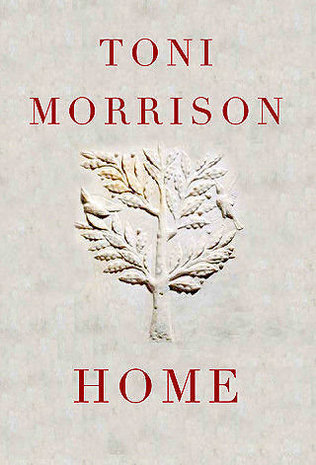Review: Toni Morrison’s “Home” (2012)
It was the need to runaway that compelled and invigorate the adolescent us. The yearning to escape humdrum days of painted scenery and aromatics that covered the seediness of sights too profane and provocative to share with others there, but it was universally felt and understood too damn well. To escape home meant escaping the demons that lived within us, but perhaps it only stowed them away, making room for others to occupy that space.
In Toni Morrison’s Home, Frank Money is a young black man that escapes the humdrum town of Lotus, Georgia for the battlefield of the Korean War only to return with PTSD and the new charge of rescuing his sister Cee from a Confederate sympathizing doctor for whom she worked for. Along the way, he must confront the demons of war and of his hometown plagued by Southern hatred in the 1950s as personified by the brutal murder of a colored man.
Although the novel is brief, 160 pages, its brevity is beautiful. Morrison is a noted master of story telling that within a few sentences, the poem at the beginning (an allegory of a man confounded by why his key opens a shadowy looking lock on a strange house), for example, sets the mood and setting without it feeling forced or contrived. Her economy of language is outstanding, removing unnecessarily sentimental and flowery imagery for that of rawness so true that one can hear the braying of horses that haunt Frank. Morrison’s concise word choice is just one element that gives the story weight.
Home presents revolving viewpoints of Lotus and life that crowns the main plot involving Frank and Cee. At first, those that seem vicious, distant, and stark antagonizing characters in the lives of Frank and Cee are soften through this Faulkner-esque device. Highlighting dreams deferred and loves lost, motives for these characters sullen and misplaced retaliatory behavior are revealed. They are not villains waiting to be vanquished, but people of unfortunate luck that are dealt with by the degrading nature of human life. Yet, all characters are redeemable, but they must fight for redemption. As the narrator points out in the voice of Cee, “She wanted to be the one the rescued her own self. Did she have a mind, or not?” This is not just a statement for her, but rather every character in the book including Frank.
Morrison sidesteps the dichotomy of good versus evil by positing that the citizens of Lotus are the product of southern 1950s racism illustrated by Cee’s medical abuse at the hands of a wealthy Confederate sympathizing doctor for whom she worked for. Her exploitation brings to mind the Tuskegee syphilis experiments, a government sanctioned experiment in which many poor black men were subjected to exposure to syphilis. The actual villains of Lotus and its citizen are not flesh and blood, but ideas turned laws in the racist south.
As Michiko Kakutani of the New York Times states about Morrison’s book, “This haunting, slender novel is a kind of tiny Rosetta Stone to Toni Morrison’s entire oeuvre.” Indeed, within this novel breathes excellent character development, storytelling, and the ability to set the mind aflutter that can be found in any of her books but shows its mastery through a concise use of language within these pages.
Toni Morrison’s Home was publish through Knopf Publishers and became available on May 8. Her book is available through local and retail book sellers now.
Post by Xavier
